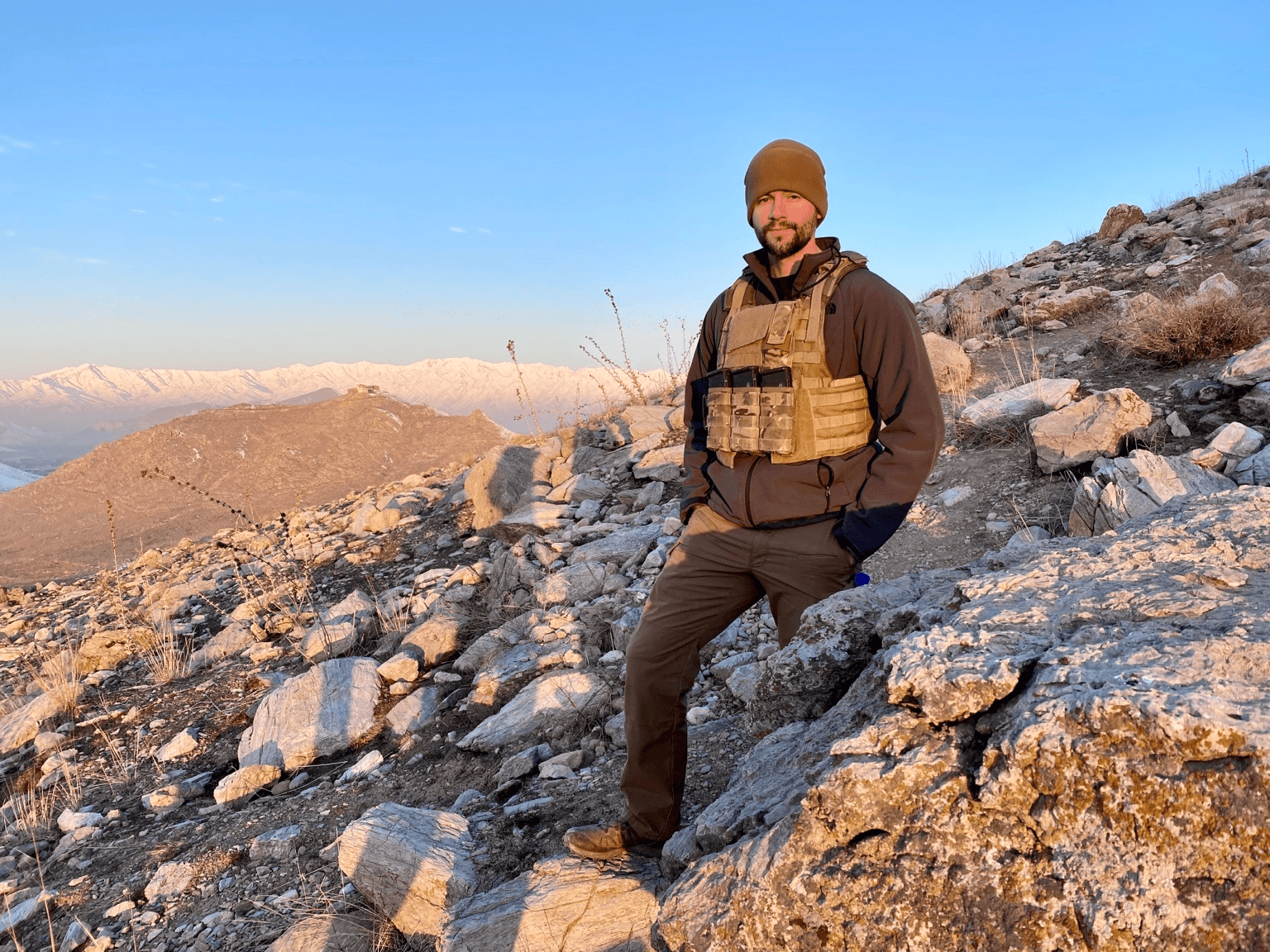We were lucky to catch up with Jeremy Noble recently and have shared our conversation below.
Jeremy, appreciate you joining us today. We’d love to hear about the best advice you’ve ever given to a client? (Please note this response is for education/entertainment purposes only and shouldn’t be construed as advice for the reader)
Instead of the best advice I ever GAVE to a client, I’d like to share the best advice I ever RECEIVED from a client.
I was an active duty psychologist for a U.S. Army special operations unit. I had just arrived to the unit and had begun seeing soldiers in the unit’s embedded behavioral health clinic. I was also preparing to attend Ranger School- a 62-day Army school designed to teach small unit tactics and leadership and largely accepted as the Army’s toughest course boasting a 50% graduation rate. Completion of the course was a requirement for anyone assigned to my unit. As a psychologist with less than three years’ time in the Army and zero infantry experience, to say I was nervous about attending the course would be an understatement. While waiting for my class start date, I saw a soldier for an evaluation in our clinic. He was a mid-grade officer with an impressive resume, charismatic and smart. Like other members of the unit, he took every advantage afforded to him to optimize his performance to include use of the unit’s behavioral health resources. After completion of the evaluation, he learned I would soon be leaving for Ranger School. He immediately went into big brother mode and started providing reassurance and advice. He said something that has stuck with me to this day: “Remember, the good guy factor goes a long way.”
In order to graduate from Ranger School, students must pass through a series of gates. First, there are the physical requirements such as running five miles in less than 40 minutes or passing a swim test, all of which are completed after the first week. The remaining eight weeks (or 15 weeks if you are unfortunate enough to repeat phases like I was) are anything but individual events. They require working together with your squad or platoon to accomplish a mission- missions that involve carrying 100 lbs. of gear up and down the mountains of Dahlonega, GA or wading through the gator-invested swamps of western Florida, all of which are conducted by men and women running on 45 minutes of sleep who haven’t spoken to their loved ones in weeks and whose performance dictate whether or not you get “a go” and move one step closer to graduating from the course. It is impossible to do it alone. Being a “good guy” is the most effective path to success- volunteering to carry the heavier machine gun even though your feet are swollen or choosing to lie next to the sleepy Ranger in the patrol base to help keep him awake. Being a good guy means thinking beyond yourself and doing for others while in your most vulnerable state. Because when you do, they return the favor.
I consider this an important lesson in life. I have found the old adage, “Nice guys finish last,” to be only partially true. If “nice” is meant as passive, then there’s some truth to the statement. Goal-oriented aggression is a requirement of success. However, if “nice” is meant as selfless, then I believe the statement is false. Being helpful and good to others results in reciprocity, which is a high-value return on investment. I learned that in Ranger School and its validity has been reinforced in other areas of my life since. The good guy factor really does go a long way.

Jeremy, before we move on to more of these sorts of questions, can you take some time to bring our readers up to speed on you and what you do?
I am a consulting psychologist who applies the science of psychology to help improve the practices of organizations and businesses. My services range from the individual to the organizational level and generally fall into four main buckets:
1) Personnel Assessment and Selection: Hiring the right people is arguably the most important task for any organization. I help companies identify what knowledge, skills, abilities, and other attributes are required upon entry into their organization and how to measure those factors in job candidates.
2) Individual Development: Self-development doesn’t happen automatically. It’s a deliberate process that requires effort, especially as leaders progress in rank. As an expert in behavior change, I offer one-on-one performance coaching to help individuals reach their professional goals.
3) Team Development: Most businesses are comprised of teams. When team dynamics are poor, everyone suffers. I offer team cohesion building sessions. These sessions typically involve a team personality test and group discussion regarding individual personality differences.
4) Organizational Development: When business leaders have concerns, I offer climate assessments to uncover the root cause of any organizational issues and then work with stakeholders to remedy those issues via evidence-based interventions.
My path to organizational psychology is an unconventional one. I graduated with a PhD in Counseling Psychology from the University of Southern Mississippi in 2014. From there, I joined the U.S. Army as an active duty psychologist. I spent the majority of my career within the special operations community where I served as an operational psychologist applying psychology to improve individual and organizational performance. I left the Army in 2022 and started my own consulting company- Noble Organizational Consulting.

Any advice for managing a team?
According to the research, effective leadership is comprised of two components: 1) getting results (e.g., accomplishing goals) and 2) taking care of and developing employees. Many leaders place more emphasis on #1 than they do on #2 which is a short-sighted practice. I was guilty of this early in my career. Fulfilled employees with high morale are productive employees. By prioritizing #2, you are laying the foundation for a more sustainable #1.
Leaders account for the majority of what makes an employee engaged at work. The key to employee engagement and high morale are leadership practices that emphasize autonomy, growth challenges, and recognition.
Autonomy – Humans have a strong desire for freedom and independence. When their options are restricted, they tend to push back. This reaction is called Psychological Reactance, which refers to the discomfort and motivation to resist that arises when people perceive a threat to their freedom of choice. Employees who feel they lack options in decisions or actions are likely to become resentful and lose motivation. Leaders who offer choices to their employees, whenever feasible, can reduce resistance and enhance motivation.
Growth Challenges – People enjoy facing challenges, but for them to be most effective, the challenge needs to be appropriately balanced. Tasks that are too simple can cause boredom, while those that are excessively difficult can lead to frustration. Tasks of moderate difficulty tend to produce the best outcomes. When employees are assigned tasks that are just challenging enough, they may feel a sense of pride in being trusted with such responsibilities. Successfully completing these tasks can also bring satisfaction, which boosts their motivation to tackle similar challenges in the future.
Recognition – When employees believe their contributions are appreciated, they are more likely to commit to the organization. Leaders who seek and recognize input from their team, rather than imposing a rigid “my way or the highway” stance, foster a sense of shared responsibility in decision-making. This approach not only boosts employee motivation but also encourages the exchange of valuable ideas that can benefit the organization.

Training and knowledge matter of course, but beyond that what do you think matters most in terms of succeeding in your field?
Interpersonal skills and relationship building, hands down. You can be the most technically proficient psychologist in the world, but if you burn bridges, you’ll find yourself on an island quickly. Relationship building is especially crucial in the world of private practice consulting. Nearly all of my clients don’t know or care what the “ABPP” at the end of my name means. Their first, most important criteria will be to ensure that I’m a normal guy and not some weird psychologist who thinks he knows everything about them based on their relationship with their mother. If they have a pleasant interaction with me, my chances of picking them up as a client is significantly greater.
Similarly, my business would not exist without the relationships I’ve built over the years. Nearly all of my current clients have been referrals from previous co-workers and colleagues. While the motive to be kind and collegial is and was never to get something in return, I have been struck at how much those interactions and relationships have paid off years later.
Contact Info:
- Website: https://www.psychology.consulting
- Instagram: https://www.instagram.com/nobleorganizationalconsulting/
- Facebook: https://www.facebook.com/nobleorganizationalconsulting
- Linkedin: https://www.linkedin.com/in/jeremy-noble-phd-abpp-b93a7617a/



